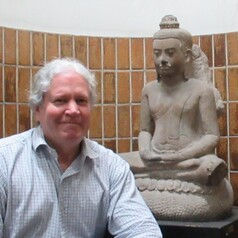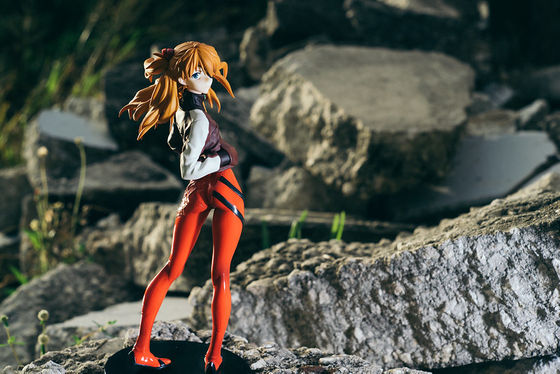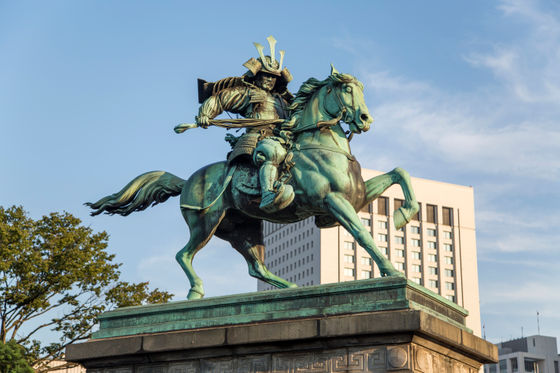American philosophy professor speaks earnestly about Demon Slayer's Rengoku Kyojuro

The animated Japanese manga '
How Japanese anime draws on religious traditions to explore themes of destiny, sacrifice and the struggle between desire and duty
https://theconversation.com/how-japanese-anime-draws-on-religious-traditions-to-explore-themes-of-destiny-sacrifice-and-the-struggle-between-desire-and-duty-246960

'One of the most fascinating aspects of Japanese anime is its ability to blend thrilling action with deep spiritual and ethical questioning,' said Green, who has studied Japanese anime for many years and explored how its stories connect to cultural, philosophical and religious traditions.
Green praised the film 'Demon Slayer: Demon Slayer: Kimetsu no Yaiba the Movie: Mugen Train' as a good example of how these themes are depicted in anime. Before delving into the content, Green first explained Japan's religious views, which are rooted in the traditions of Buddhism and Shintoism.

◆Spiritual themes in anime
Anime often uses religious motifs to address philosophical themes such as fate, self-sacrifice, and the conflict between desire and duty, such as Hayao Miyazaki's
According to Green, Princess Mononoke reflects Shinto ideals by treating nature as a sacred place where gods and spiritual beings live. This emphasizes the harmony between humans and the environment and what happens when that balance is disturbed. Spirited Away also strongly reflects the Japanese animistic idea that gods reside in all things, and through the growth of the main character, Chihiro, the film depicts a reverence for the spirituality that lives in nature.
Another anime Green mentioned was ' Neon Genesis Evangelion .' While the show is often discussed in Japan for its Christian themes, Green pointed out the influence of Buddhist ideas. 'The show is influenced by both Buddhist and Gnostic thought, and it focuses on inner spiritual wisdom and highlights the belief that clinging too much to the material world can result in suffering. It portrays suffering as arising from attachment and the failure to form meaningful relationships,' he said.

By
Rengoku Kyojuro as the embodiment of a selfless hero
According to Green, the most notable aspect of 'Mugen Train' is the inner conflict of the characters, symbolized by the battle between the demons and the Demon Slayer Corps members who hunt them. The man-eating demons that appear in the work represent human suffering and attachment, and Green analyzes that this theme is deeply influenced by Buddhist thought.
The film's central character is Kyojuro Rengoku, a Demon Slayer Corps member who embodies unwavering selflessness and honor. Green sees Rengoku's flame-based fighting style as particularly symbolic, as fire is seen as both destructive and regenerative in Japanese culture.
For example, the Kurama Fire Festival , held every October 22nd in Kyoto, is a Shinto ritual in which large torches are lit through the city to ward off evil spirits and purify the land. Similarly, in the Buddhist goma ceremony, monks add goma wood to a sacred fire to symbolize the disappearance of ignorance and worldly desires.
'The Purgatory Art reflects this duality, with his fire cleansing the world of evil while also representing his unwavering spirit,' Green said.

Green also points out that Rengoku's character is rooted in the samurai code of loyalty, self-sacrifice, and the duty to protect others. Bushido has its roots in Confucianism, Zen Buddhism, and Shintoism, with the Shinto influence emphasizing Rengoku's role as a guardian of sacred obligations.
In addition, the teaching that Rengoku's mother told him, 'It is the duty of those born strong to help the weak,' is Rengoku's guide to action, but it also reflects the Confucian value of ' filial piety ' and the moral obligation to serve society.
The connection between Bushido and Zen Buddhism is manifested in the emphasis on discipline and the idea of impermanence, which informed Rengoku's unwavering resolve. This is symbolized by Rengoku's final moments, in which he remained unfazed as his death approached, accepting impermanence - a fundamental Buddhist principle that sees beauty in the transience of life. 'His sacrifice teaches us that true strength lies in selflessness and moral integrity,' Green said.

Akaza as a symbol of obsession and suffering
In the 'Mugen Train' arc, Rengoku Kyojuro faces off against Akaza, a demon who embodies the obsession with power and immortality. Akaza was once a human, but became a demon because of his obsession with power and could not accept impermanence, making him the opposite of Rengoku.
Akaza's refusal to accept death is consistent with Buddhist teachings that suggest suffering arises from attachment and desire. Scholars such as Jacqueline Stone, professor emeritus of Japanese religion at Princeton University's Department of Religion, have studied how Buddhist scriptures discuss attachment to
Green also pays attention to Akaza's full-body tattoos. Japanese tattoos have historically been associated with crime and suffering, and in the Edo period, criminals were given tattoos on their faces as punishment.
Taking this into consideration, Green said, 'Akaza's tattoos visually communicate that he is trapped in a circle of suffering, emphasizing the contrast with the liberating flames of purgatory.'

◆Depiction of combat as a human struggle
Green argues that the conflict between Rengoku and Akaza depicted in the film is not just a battle between good and evil, but a clash between opposing worldviews such as selflessness and selfishness, acceptance and attachment. He says that the reason why 'Mugen Train' resonated with people not only in Japan but all over the world is because it reflected such universal human conflicts.
Green said 'Mugen Train' helped anime to combine profound themes with entertainment value by making viewers ponder questions of impermanence, moral obligation and the meaning of life and death.
Regarding the two main characters who appear in the work, he said, 'Through Rengoku's selfless courage and Akaza's tragic downfall, 'Mugen Train' offers a timeless opportunity to reexamine what it means to live a life of purpose and integrity.'
Related Posts:
in Anime, Posted by log1l_ks







